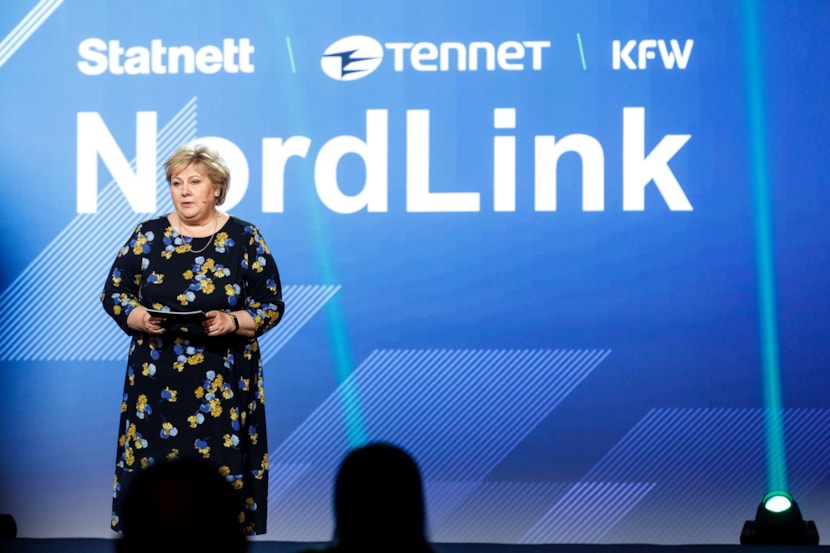The NordLink interconnector has a capacity of up to 1400 MW, is 623 km long and runs between Agder in Norway and Schleswig-Holstein in Germany.
- Today and with NordLink, Germany and Norway are moving even closer together. The first direct electricity bridge not only helps stabilize energy prices in both countries. NordLink is a milestone for sustainable energy supply and climate protection in Europe. Because the focus is on the exchange of renewable energy, says the German Chancellor Angela Merkel.
Norway is a small country, but a great energy nation. The NordLink cable is a great example of how we collaborate with other countries to create value from our energy resources. NordLink brings us closer to a more efficient power system and an even more electric future, says Tina Bru, Norwegian Minister of Petroleum and Energy.
The interconnector will ensure an efficient exchange of power between the countries for the next 40 years.
- Today we’re celebrating a technical masterpiece and a great and successful project. This interconnector is an important step towards a fully electric and renewable society in both countries. Everyone who helped complete the project on the Norwegian and German sides deserves a round of applause. This is an important day on route to transforming Europe into a climate-neutral society, says Statnett CEO Hilde Tonne.
- NordLink is an enormously important building block for the European energy transition in order to compensate for wind- and sunless periods and, at the same time, make green energy available safely and affordably in Europe. NordLink enables a climate-friendly electricity system, creates value in both countries, and is an important building block for achieving the climate targets. As a transmission system operator, TenneT is furthering the energy transition and grid expansion like no other in Europe, in order to transport renewable energies onshore and offshore, and integrate them into a modern energy system, says CEO of TenneT Manon van Beek.
- NordLink is the most significant project in the European energy sector and a prime example of the energy transition in Germany as well as Europe. KfW's involvement shows our clear commitment to climate change mitigation and environmental protection. The exchange of electricity from wind and hydropower made possible by the subsea cable gives us supply security and stable energy prices and also increases the share of renewables in the energy mix. We are proud to be part of it and to have supported NordLink from the planning stage all the way to commissioning., says Member of the Management Board at KfW Markus Scheer.
With the exchange of Norwegian hydropower and German wind energy, two systems complement each other in an optimal way. NordLink facilitates a climate-friendly power system and value creation in both countries by facilitating the exchange of Norwegian hydropower and German wind energy.
The project has taken five years to complete. The interconnector has undergone trial operations since late last year and was put into commercial operation in March. The total costs for NordLink are estimated at the cost range of 1.7 - 1.8 billion Euros.

